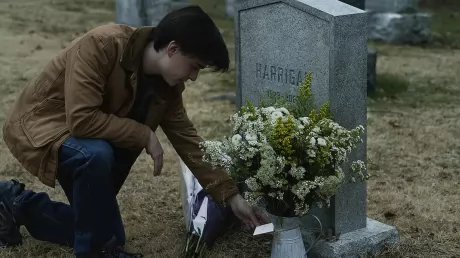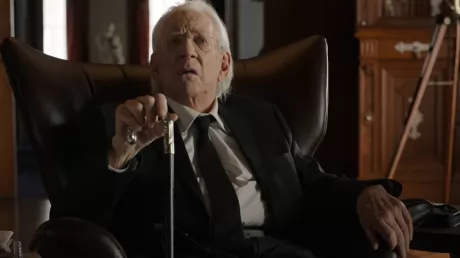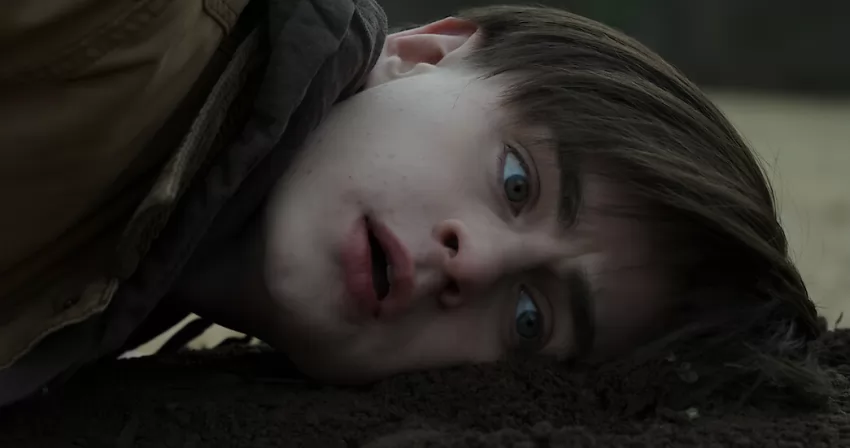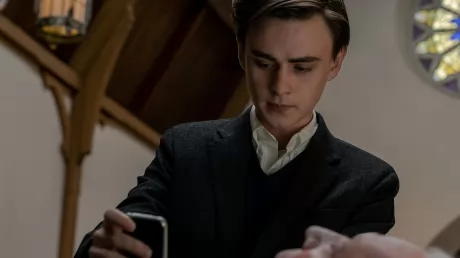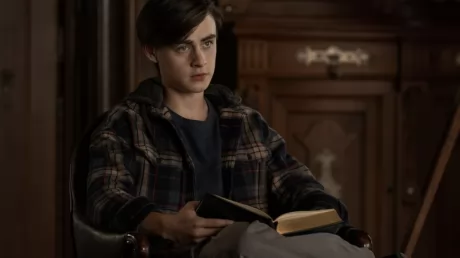The morbid attachment to objects is reflected in a possession that twists up to become its inverse, when things possess people and not the other way around. The relationship with the mobile phone is the perfect example of the minimalist warning, with its eager load of petty information and cold human contacts, which empty any beauty of meaning, transforming it into everyday life. The echo of this visceral technological relationship also reverberates in death within the first story taken from If it Bleedsone anthological collection signed Stephen King and released in 2020, which inspires the homonymous film written and directed by John Lee Hancock.
Mr. Harrigan’s Phone (you can find it among the Netflix films of October 2022) marks the return to the cinema of the youthful atmospheres elegantly described by the King of horror, because his story of revenge and curse follows in a subdued way the much more important one of a boy who learn what is really important in life, elaborating mourning in different forms to arrive at the frugal awareness of knowing how to leave what one cannot possess: people, objects and unwary desires. The Blumhouse production and Ryan Murphy (his latest TV series rocked Netflix, as we told you in review by Dahmer) turns out to be a drama rather than a horror film, a plausible and well-told story that carries a universal message, but does not try to surprise its audience.
A message from the grave
Harlow, a small isolated town in the countryside in Maine, is the residence chosen by John Harrigan (Donald Sutherland) to spend the last years of his life in peace, away from the din of the big cities in which he has lived until then.
The man is a billionaire little loved by the community for his shy nature, and not even the national press has been courteous to him in the course of his long career, due to the very aggressive corporate movements that have made him rich and alone. After listening to him reading a verse in the Church, the wealthy old man hires little Craig (Jaeden Martell) to have the books he is in love read aloud. establishing a sincere friendship over time that he will abandon only the day of his death. The boy learned a lot from Mr. Harrigan and his books about him, cultivating a deep relationship that he tried to solidify through the gift of a cell phone.
The gruff businessman initially rejects the item as useless and distracting, but later he understands how to appreciate the wonders of technology and becomes almost inseparable from his iPhone. On the day of the funeral, Craig slips his smartphone into his deceased friend’s jacket to lull himself into the mournful dream of a still existing bond, later taking to call Mr. Harrigan’s grave to tell him about his loneliness and the problems he is facing at school. What was only a fantasy born of pain, however, manifests itself in terrible and violent responses, which affect the life of Craig and those who care about him.
Knowing how to look up
Anyone who has followed Stephen King throughout his fantastic career knows very well that the King is not only the author of scary stories, but is above all a careful narrator of our society and its weaknesses. He is therefore not surprising the secondary role entrusted to the absurd in the story taken up by Hancock, with the otherworldly and inexplicable experiences to act as an added piece to what is simply the story of a boy torn between two griefs difficult to accept, a character who would often like to stop and reflect but is overwhelmed by the world around him to him continues to proceed regardless of his pain.
The director of Until the last clue he therefore accepts the calm rhythm of a solid and full narrative, taking all the time necessary to paint the different facets of the different and complementary relationships established by the protagonist. In fact, the evolution of friendship with the wealthy elderly occupies a large part of the time, as proof of its essentiality in terms of plot, while it is only in the late sequences that those horror elements appear capable of upsetting a normal existence. The actions of Harrigan’s spirit, between incomprehensible messages and suspicious deaths, however, rarely find the honor of images, but they are analyzed through tales and stories of those who have witnessed events that are supernatural only for Craig, leaving to his mind (and that of the spectator) the responsibility of turning them into concrete reality.
An icy existence
The desire to move away from the rawness of bloody situations underlines the fundamental message of the film, which uses the cinematographic method precisely to glorify the great stories and its narrators. The choice of books to read at Harrigan’s house is not accidental, each of them (among those shown in the minutes of the film) takes up the themes of money, power and the essential role of affectiongrowing little Craig into a man aware of what is really important in life.
On the contrary, his elderly friend is pulled out of that world he was the spokesperson for, his mobile phone – which, unlike books, does not need constant attention and active participation – replaces the unforgettable words of Dostoevsky and Dickens, pushing him away. again from the boy after so many years spent chasing an unexpected relationship. Loneliness is a preponderant element within the narrativebecause his main characters are unable to establish a true bond with anyone else – including Craig’s father, a man drained of vitality by a bereavement that has hit him harder than his son -, and is also manifested through images thanks to a photograph that remains cold and unaffective for the entire duration of the film, even during the brief hints of the supernatural that enliven the story.
As previously stated, these unexplained events are minimal and naturally fit into a calm, plausible and well told plot, but devoid of major jolts and unable to surprise its audience. On a technical level, some sequences edited with excessive speed turn up their noses, which clashes with the thoughtful cut sought by the film and taken up by a very calm soundtrack, while the performance of a convincing Martell in its continuous presence on the screen is to be praised.
Mr. Harrigan’s Phone Review: Stephen King’s return to Netflix

